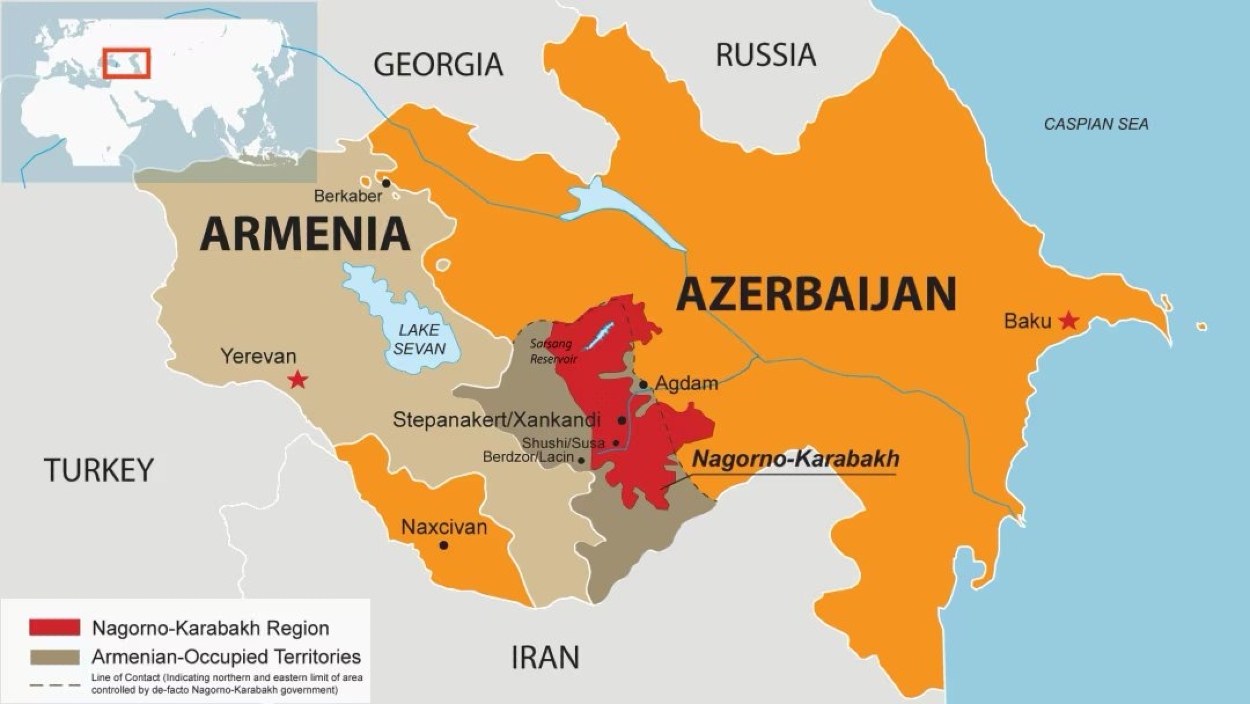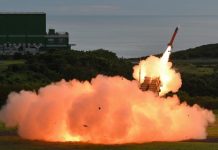Amidst the protracted Ukraine-Russia conflict, a recent Hamas terrorist attack on Israel has heightened the possibility of an Israeli ground offensive on Gaza. Concurrently, there are growing concerns about a third conflict brewing in the South Caucasus, with the US reportedly indicating that Azerbaijan may soon invade Armenia.
JF-17 ‘Loses’ The Thunder! US Approves F-16 Fighter Sale To Argentina To Beat China-Pak Offer
In a recent briefing to a small group of lawmakers, Secretary of State Antony Blinken alerted them to ongoing monitoring by his department regarding the potential of Azerbaijan launching an invasion of Armenia in the coming weeks, reported Politico, citing sources.
During an October 3 phone conversation, legislators reportedly questioned Blinken about potential actions against Azerbaijani President Aliyev in light of his country’s incursion into the Nagorno-Karabakh region in September.
Blinken responded that the State Department is actively exploring options to hold Azerbaijan accountable. He made it clear that there are no plans to renew the longstanding waiver that allows the US to provide military assistance to Baku. The agreement, in place since 2002, has been renewed annually, but it lapsed in June.
Furthermore, he expressed the State Department’s concern about a possible situation where Azerbaijan could invade southern Armenia in the coming weeks. After Baku’s offensive on September 19 in Nagorno-Karabakh, which led to a Russia-brokered ceasefire within just one day, an estimated 100,000 residents reportedly fled the region and sought refuge in Armenia.
This massive exodus raised concerns in Yerevan, where officials worried Baku might have territorial ambitions within sovereign Armenian territory. A particular source of apprehension lies in the southern region of Syunik, which Azerbaijan refers to as the Zangezur Corridor and Azerbaijani President Ilham Aliyev calls “Western Azerbaijan.”
President Aliyev was notably absent from the scheduled peace talks between Baku and Yerevan on October 5 in Granada, Spain. Instead, he proposed Georgia as a potential host nation for negotiations with Armenia.
Nonetheless, during a conversation on October 3, Blinken conveyed his hope that the ongoing tensions between Armenia and Azerbaijan could still find resolution through productive diplomatic dialogue, according to the report.

Nagorno-Karabakh Conflict
The conflict in Nagorno-Karabakh has deep historical roots, with tensions between Armenia and Azerbaijan dating back to the early 20th century. It escalated after Nagorno-Karabakh declared independence in 1990, leading to a war that resulted in significant territorial gains for Karabakh Armenians and substantial losses for Azerbaijan.
In 2020, with Turkish support, Azerbaijan recaptured territory in a war, leading to a Russia-brokered ceasefire. The recent conflict in September 2021 began when Azerbaijan launched an “anti-terror” campaign in response to two land mine explosions within its territory.
The Azerbaijan campaign led to the displacement of thousands of residents. Besides that, Russia has failed to protect Armenia’s interests in the area. Since the Ukrainian invasion, Russia’s dependence on Azerbaijan and Turkey has grown, aiding its evasion of Western sanctions through clandestine financial operations. This increased reliance grants Presidents Aliyev and Erdoğan additional influence, which they openly wield to impact events.
Simultaneously, the European Union’s shift towards Azerbaijan for oil and gas lessens Baku’s fear of sanctions for actions in Nagorno-Karabakh. Furthermore, Russia’s strained relations with Western powers have pushed it into direct competition for influence in the South Caucasus, allowing Baku to use its military with less concern for coordinated opposition from the UN Security Council’s permanent members.
Over the past year, the once-strong bond between Moscow and Yerevan has exhibited signs of strain. In a recent development, Armenia’s decision to engage in a collaborative military exercise with the United States in September raised eyebrows in Moscow, leading to expressions of concern about this joint maneuver.
Furthermore, Armenia’s Prime Minister, Nikol Pashinian, has pointed the finger at Russia, accusing the nation of falling short in safeguarding Armenia from what he characterizes as ongoing aggression from Azerbaijan. Experts contend that Armenia’s recent actions can be interpreted as efforts to demonstrate that the country is distancing itself from Russia.
If Azerbaijan launches an invasion of Armenia, it could potentially trigger a third major conflict, following the Russia-Ukraine war and the Gaza-Israel conflict, with far-reaching global consequences.
- Contact the author at ashishmichel(at)gmail.com
- Follow EurAsian Times on Google News




